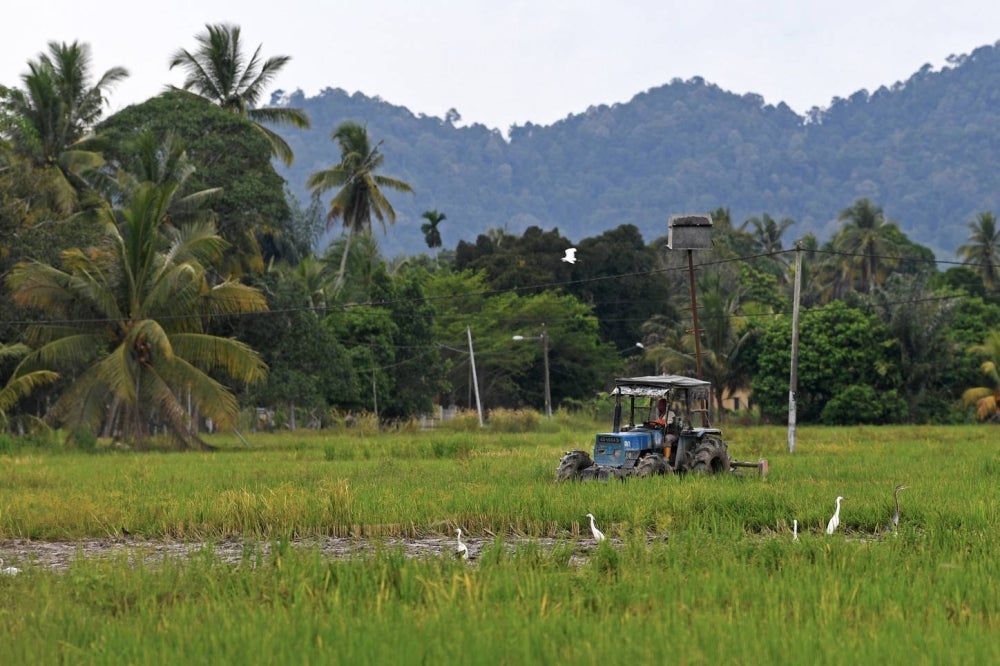The joke in Kedah and Umno’s seemingly looming reckoning

WHAT was deemed unthinkable for decades has happened.
And when echoes of the latest sales pitch borne of the ironic political dalliance between Umno and DAP made its way to a bustling ‘warung’ in Langkawi; a burst of laughter erupted among a group of local Malays who were enjoying their breakfast there.
“What nonsense is this? Can you believe this joker?” one of them spoke, disbelievingly whilst showing the news on his phone to the rest of the group.
“Hasn’t ‘Mat Maslan’ always been one?” another quipped.
It was obvious what was the topic of discussion – Umno supreme council member Datuk Seri Ahmad Maslan’s recent call for party members to vote for DAP candidates in the coming state elections.
Those unfamiliar with Malaysian politics might see nothing worth sneering about such beseeching after all it is perfectly normal for political allies to help each other out, especially when polling season looms closer.
But to those who understand the dynamics of Malaysian politics, would know that this is one bone which should not be thrown, especially by Umno.
The irony of Umno’s current gambit lies in the historical narrative which the Malay party has carefully crafted over decades; highlighting DAP as the antagonist, capable of undermining the Malay’s position in the country.
And Umno succeeded in planting such seed.
Nonetheless, it takes two-to-tango. DAP was no saint and has – for decades – served more than enough bullets, on a platter to boot, to make Umno’s propaganda ever so believable, especially in the Malay heartlands.
Hence the reason why Umno’s attempts to convince the Malays otherwise now seem to fall on deaf ears, met with a mix scepticism and amusement and seen as disingenuous and self-serving was, to put it bluntly, a no-brainer.
And in Kedah, where electoral battle has always been between Umno and Pas, it is equally obvious to whom the proverbial political winds will be blowing towards.
It is a shame really, because despite Pas’ conspicuous presence in Kedah – from the many flags and posters decorating along the main roads – the Islamist party was never much of a factor except in the 2008 state election.
Due to the long dominance by Umno, the defeat appeared to come from nowhere. Statistics from previous general elections since 1959 didn’t show any sign that Pas was capable of rocking the boat.
Alas, such was the crushing hit inflicted on Umno – including Barisan Nasional (BN) – that if it had 86.11 per cent share of the state seats in 2004, this was down to a mere 38.89 per cent four years later.
When the political tide turned in Kedah, Umno leaders were quick to blame the Chinese tsunami and the formidable alliance of Pas, PKR, and DAP, known as the now-defunct Pakatan Rakyat.
However, astute observers in Kedah knew better.
The dissatisfaction with Barisan Nasional (BN), largely self-inflicted by the coalition, had been simmering since the 80s and 90s, gradually gaining momentum.
While this discontent didn't immediately translate into votes, two key issues contributed to growing disillusionment: the contentious appointment of the menteri besar and concerns surrounding governance.
The tenures of Tan Sri Osman Aroff (1985-1996) and the late Tan Sri Sanusi Junid (1996-1999) played a significant role in fueling public frustration.
Osman's administration's decision to acquire paddy fields for shrimp farms in Kerpan in 1993 ignited intense protests, as paddy planting held immense cultural and economic significance in Kedah.
Sanusi's subsequent appointment failed to resolve the Kerpan issue, and tensions persisted, culminating in an attack on farm staff in 1997.
Sanusi's unconventional ideas, such as urging farmers to grow paddy on rooftops and launching a campaign to pluck husbands' grey hair, strained his relationship with some Kedahans, as did his alleged acerbic remarks towards those he deemed inferior.
These issues led to BN and Umno’s declining power, with their support dropping from 94.44 percent in the 1995 elections to 66.7 percent in 1999.
While Datuk Seri Syed Razak Syed Zain Barakbah, who succeeded Sanusi, faced few controversies apart from questions about his academic qualifications, the same couldn't be said for his successor, Datuk Seri Mahdzir Khalid, who assumed office in December 2005.
Despite being MB for a relatively short period, Mahdzir found himself embroiled in a heated disagreement with former prime minister Tun Dr. Mahathir Mohamad – an act that didn't sit well with many locals at the time – during the latter’s rebellion against his successor Tun Ahmad Abdullah Badawi.
The subsequent disappointment with the Pas-led Pakatan Harapan government in Kedah stemmed from their perceived inefficiency, particularly in managing rampant logging in Changlun and Sintok.
Internal conflicts within Kedah Pas, pitting ulama against technocrats, further soured public sentiment, ultimately resulting in the formation of a splinter group, Pasma, led by Datuk Phahrolrazi Zawawi, the deputy commissioner of Kedah Pas at the time.
While some from Umno attribute their victory in 2013 to their hard work under the leadership of current MB Datuk Seri Ahmad Bashah Md Hanipah, others believe that Kedah BN's success was primarily a result of the division within Pas.
It should be noted that many also voted for BN out of curiosity and excitement over the prospect of having Mahathir's son as the MB as promised by then-prime minister Datuk Seri Najib Razak during election campaigns.
Yet, despite initial approval, Datuk Seri Mukhriz Mahathir's unorthodox governance style, including frequent weekends spent in Kuala Lumpur, drew criticism from those of the Kedah Civil Service and Umno leaders, ultimately leading to his ousting in 2016.
In 2018, Mukhriz – who was with Pribumi Bersatu at that time – made a comeback as MB under the banner of Pakatan Harapan (PH) but apparently lady luck parted ways with him after 25 months; Bersatu’s exit from PH crumbled Mukhriz’s administration.
But every ending is a beginning.
Mukhriz’s downfall led to the rise of another Sanusi but unlike the previous one, Datuk Seri Muhammad Sanusi Md Nor has turned out to be an MB whom many Kedahans in the state ended-up rooting for.
Datuk Seri Sanusi Md Nor distinguishes himself from his predecessors by eschewing poshness and polish. He is a person unafraid to show his rough edges, with a tendency for shooting from the hip and making flippant remarks that have garnered him criticism from urbanites on social media.
But on the ground, the reality is different.
In spite of his flaws, Sanusi is down-to-earth. A leader whom many in the state can relate to and has seamless command of the lingo spoken by the everyday Kedahan. There is no air of haughtiness surrounding him.
Most importantly, he is ever present in the state, whether its during weekdays or weekends.
Sanusi Md Nor knew the habits and idiosyncrasies of Kedahans so well that he managed to call off Mukhriz’s bluff when the latter attempted to portray locals fishing in paddy field canals as signs of rising poverty and hunger in the state.
"You're mistaken. They are neither poor nor starving. It’s simply their pastime. Fishing for ‘puyu’ (climbing perch) in field canals is a common leisure activity in Kedah. But of course, someone born with a silver spoon wouldn't be aware of this," retorted Sanusi Md Nor, admonishing Mukhriz during last year's state legislative session.
His growing popularity among local Kedahans can also be attributed to the constant barrage of criticisms Sanusi Md Nor has faced from what many perceived as outsiders attempting to bully a Kedahan leader.
But here's the thing: he has weathered it all with what many locals saw as unwavering determination for the betterment of the state – known only for being the nation’s rice bowl.
From facing ridicule for his commitment to the Kedah Aerotropolis project in Kulim to rumours of being snubbed by federal events, including the Langkawi International Maritime and Aerospace exhibition, he has endured it with resilience.
And guess what? People are rallying behind him because of it. Simply put, it is parochialism at its finest.
Right now, the mood in Kedah is clear and simple: there isn’t anything about Sanusi that would jeopardise Pas’ chances to once again swept the entirety of state seats just like it did with the state’s parliamentary constituencies in the 15th General Election (GE15).
As it is, Umno is in for a third round of electoral reckoning by the Malays in Kedah since the party’s previous two resounding rejections in GE14 and GE15.
The whole unity government sound bite has fallen flat and stale. People are wondering is it truly a genuine commitment to unity and progress, or a mere strategic manoeuvre driven by self-interest?
Nonetheless, Umno has an uphill battle in Kedah, a state where it used to rule uninterruptedly for 53 years and if this was a game of baseball, everyone know that three strikes and you’re out.















